Do you want to be more productive?
Everybody and their mom are talking about the huge benefits of rising early.
Well, it’s all true.
You can greet the sun and be alone and do the work of the entire day in three hours if you wake at 5 AM.
But where does the extra time come from?
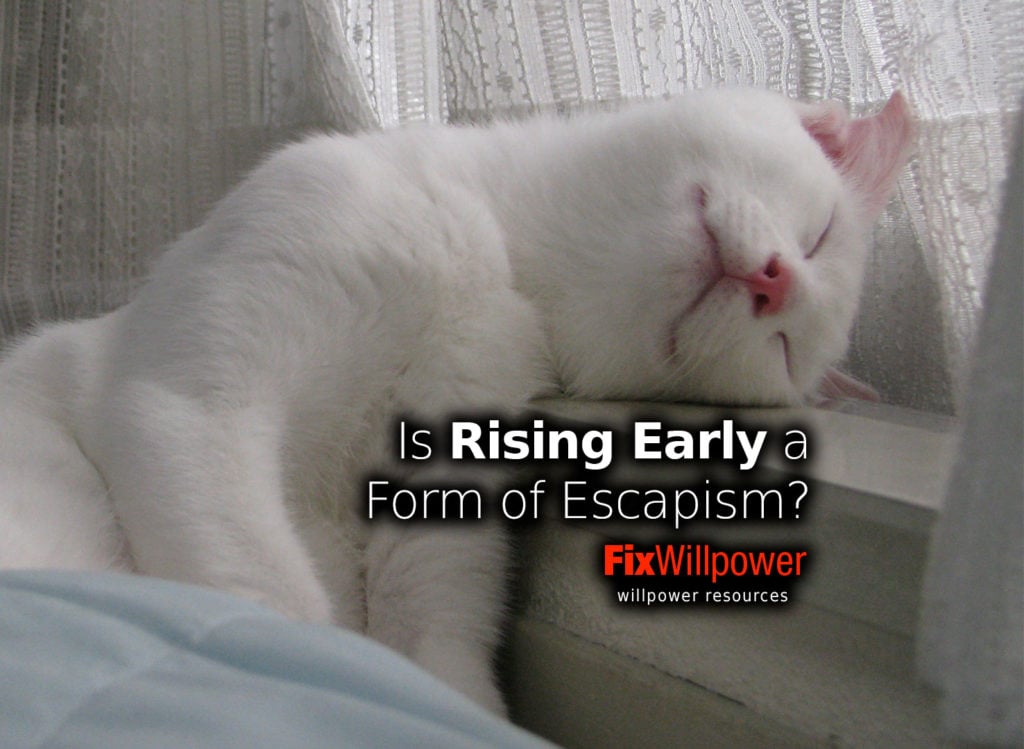
It blows away everyone who is not rising early if you tell them you get up 4:30 AM. I know, I tried.
They think to themselves that you are either amazing or insane or both. They may admire you or think you should get a life.
They are right.
Everybody has the same 24 hours
But wait, there has to be some trick here. It does not matter how long you sleep, 6 hours, 8 hours, whatever. If the time for rising early corresponds to a similarly early time to bed, then the time you are awake is the same.
Everybody has 24 hours minus time for sleep to be active.
So, how can you be more productive if you just shift your 16 hours to another location in the day?
Where does the time come from?!
Let’s say that 8 hours is a good time for a night’s sleep. So, if you want to be amazing and wake at 4:30 AM, then you should go to bed at 8:30 PM.
Well… as you can probably guess, the 8:30 PM bedtime is the problem, not when you wake up.
You get to use the most productive and energetic time, shortly after waking, on yourself, and your most important tasks. You have the time from 4:30 or 5 o’clock to when other people start to wake up.
Then the real life kicks in, going to work at 9 AM, take the kids to school at 8 AM. That probably covers 80% of the working adult’s morning routine.
But why does waking early work?
Because you trade time in the evening in the company of your family and friends for the quiet time you get in the mornings.
That’s pretty much it.
If you are not a monk you have to consider the schedules of your family members and roommates.
You may regain some of that time by spending fewer hours working, but that additional time you get is when everybody else is still working.
If you look at a person who does not have morning responsibilities, then it really does not matter when she gets up. There is no real difference if you take the three hours from 5 to 8 AM or the ones from 8 to 11 AM as your personal quiet and productivity time.
Well, that is not really true, there’s probably a peak performance time for everybody, and you should time your sleeping schedule to get your first waking hours on that period.
Some research shows that it takes one to four hours for us to get our brain functioning at full speed. For me, it’s about one hour, and I use that hour for the non-cognitive part of my morning routine:
- Meditating
- Washing up
- Make the bed
- Coffee

I love to sleep late, and I rarely have the chance to. ~ Izabel Goulart
Becoming an early riser
For most of my early adulthood, I got to bed around the time the early risers get up. I slept ’till noon, and it was great. I considered 8 AM chicken o’clock in the morning.
By my early 30s, I had developed a more rigid schedule, waking and getting to work like most people. Then I stumbled upon the idea of waking early and decided to try it.
What I found out during my experiments was that I usually wake up 7 to 8 hours after I fall asleep. Sure enough, if I get to bed at 9 PM, I’m up at 5 AM. I also discovered that it is relatively easy for me to change the time when the sleeping period occurs. I can adjust my bedtime to be anywhere between 9 PM and 3 AM.
My experiments with rising early
I ran an experiment to find out how waking up early improves my results.
I moved my wake-up time to between 5 and 5:30 am.
Waking up at 5:30 means that I have to hit the bed at 9:30 pm.
Everything seems great until you factor in the people who live with you. Spouse. Kids. Friends.
How do you get your kids to school?
What time would be a good time for a romantic candlelight dinner?
When do you have sex?
And of course, some friends think 8 or 9 pm is the time when you start having fun.
Waking up early is like living in a different time zone. Everything you do is time-shifted to a certain degree. Others wake up usually two to three hours later than you.
But the main problem is that the morning routine for most people is optimized to maximize sleep and get from bed to work most efficiently. Everybody is rushing around sleepy, and you can’t have a lot of quality time with your family at that time.
Working too much
Another problem with rising early is that when I wake at the regular time, then I work way past 5 pm. This is a habit that has stuck with me. Even if I wake at 5 am, I still work until 7 or even 8 pm. As measured with Toggle, my working time stretched to 11 hours per day.
That would not be a problem if you don’t have any social responsibilities. The 1 or 2 hours that you can squeeze into the time after work and before bed are not enough for quality relationships.
Sure, you don’t have to work 10 or 11-hour days. With a more modest workload, you might finish your day around 3 or 4 pm. However, you have to consider that for regular people the time from 3 to about 7 pm is blocked with work and after-work commute.
And now you are back at the beginning where you only have 1 or 2 hours to spend with the people you care about.

Morning is wonderful. Its only drawback is that it comes at such an inconvenient time of day. ― Glen Cook
Avoid people!
So, the real key, why rising early works, is mis-aligning yourself with others.
Be antisocial!
Avoid people!
Escape!
Well, it’s true.
If you want to avoid distractions, you have to avoid detractors; I mean people.
Yes, I understand that most people have morning responsibilities that cut your day into pieces. In that case, rising early is the best solution. But you pay for that time with the time you take off from interacting with regular folks in the evening.
What could be the solution to social isolation?
- Not rising early…. or
- Cut all social ties.
- Have lunch with family and friends.
- Convince your comrades to change their wake-up time to match yours.
That’s about it. Any other changes would have to be the combination of the options above.
Make your bed habit
There’s one habit some people use to get the first win of the day. Making your bed first thing in the morning, every morning. When you get up at 5 AM, then you have to buy another bed to make in the morning. Either that or don’t have a partner who sleeps with you.
Tell them: Sorry, I can’t sleep with you anymore, because I have to make the bed when I wake up at 5 AM and you are in my way.
Let’s see how well that conversation goes.
Are Night Owls Smarter?
A new study suggests that late-to-bed-late-to-rise leads to greater workplace success, Medical Daily.
Though outliers such as former U.S. President George W. Bush, Thomas Edison, and Ernest Hemingway achieved phenomenal success as early risers, such people on average tend to make good civil servants and accountants. In contrast, later risers tend to demonstrate traits linked to greater occupational success and higher incomes.
However, I have noticed that working late is frowned upon more than getting to bed early. In the end it amounts to the same thing, but in the morning there’s no-one to notice your odd behaviour. Waking up late and working late makes night owls seem more antisocial than they really are.
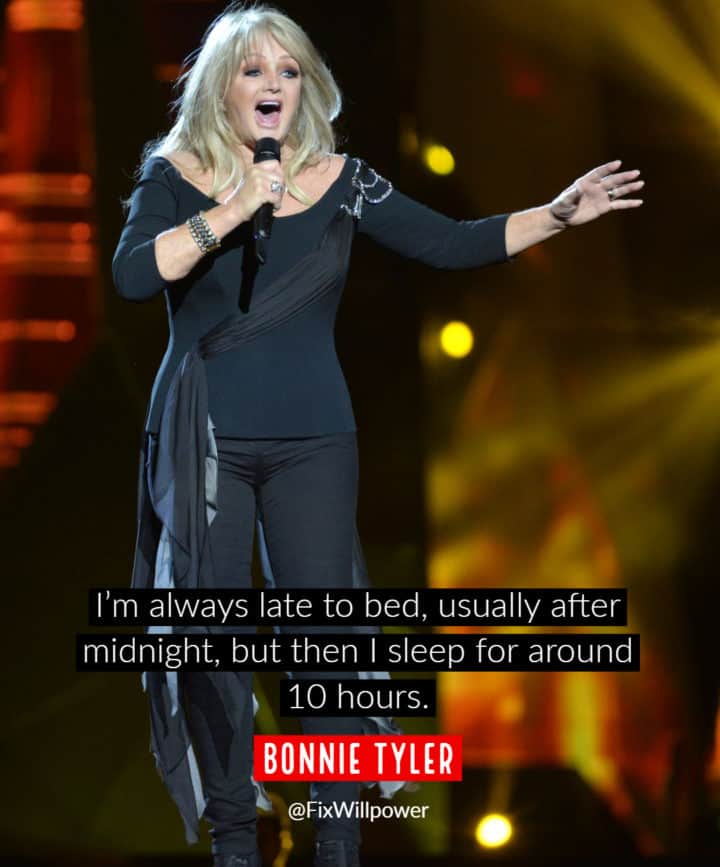
I’m always late to bed – usually after midnight – but then I sleep for around ten hours. ~ Bonnie Tyler
The 1% who need less sleep
Studies have shown that there is approximately 1 percent of the population who get by with just 3 to 6 hours of sleep. They have no ill effects like the rest of us do. Waking up after four hours of sleep makes them fresh and energetic. You may be able to do it for a few days in a row, but they go through their whole lives in this mode.
The naturally short sleepers went to bed later than controls, but awoke at similar times in the mornings. Naturally short sleepers did not appear to be excessively making up for lost sleep on weekends. Moreover, Epworth Sleepiness Scale scores were identical for the two groups, indicating no negative consequences for the short sleepers. ~ A sleep diary and questionnaire study of naturally short sleepers: Timothy H. Monk, Daniel J. Buysse, David K. Welsh, Kathy S. Kennedy, Lynda R. Rose
Why We Sleep
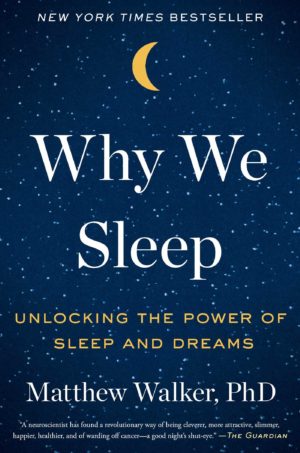
Sleep is one of the most important but least understood aspects of our life, wellness, and longevity. Until very recently, science had no answer to the question of why we sleep, or what good it served, or why we suffer such devastating health consequences when we don’t sleep.
So, there, that’s how I feel about this. Should you get up early or live with everybody else? Or are you one of the lucky short sleepers?
Write in the comments.
_____________________________
Image: Dozing cat, Milk by Ryusuke
![Read more about the article Spend Some Time Alone [and Focus on Yourself]](https://fixwillpower.com/wp-content/uploads/spend-some-time-alone-429x314.jpg)
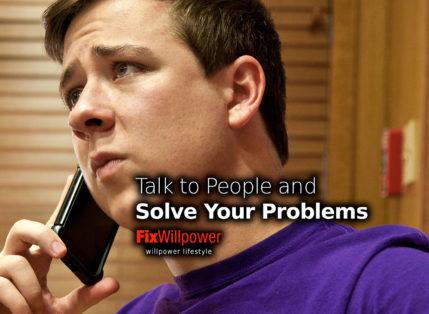
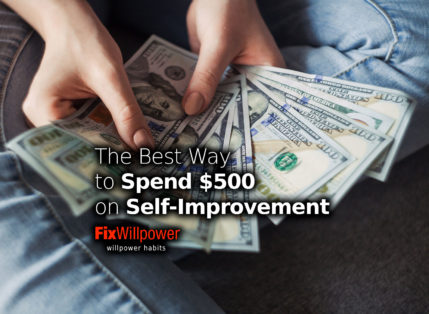
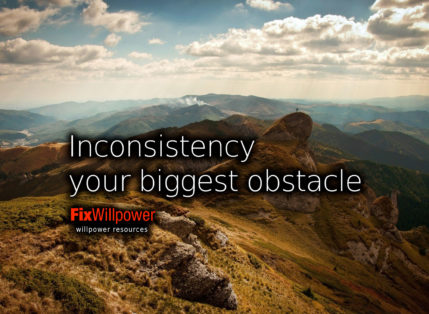
I think that when you don’t have family then getting up as early as possible is a great idea. But even then, you have a social life and almost everyone else is getting to bed much later that you are. Sometimes the party doesn’t even start before you have to go to bed.
I wake up early BECAUSE of family :)
To get kids to sleep at 9 is so much easyer if you join them.
Good point!